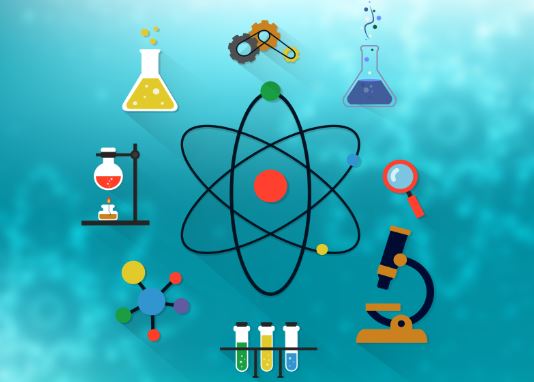Physical chemistry is the branch of chemistry devoted to the study of the behavior of matter at an atomic or molecular level. It also involves the study of the properties of substances at different scales, from the macroscopic scale which includes particles that are visible to the naked eye, to the subatomic scale involving extremely small subatomic particles such as electrons.

Physical chemistry differs from other branches of chemistry because it employs the concepts and principles of physics to understand chemical systems and reactions. The different scales that this branch of chemistry deals with are described below.
The Macroscopic Scale
The macroscopic scale involves the substances that are large enough to be visible to the human eye (without the help of optical instruments to provide a magnified view). Some important quantities that are dealt with on the macroscopic scale include:
- Melting and boiling points
- The coefficient of linear thermal expansion
- Latent heat of vaporization
- Enthalpy of fusion
Considering the example of a water molecule, the macroscopic scale involves its physical state (solid, liquid, or gaseous) but does not deal with the chemistry of the H2O molecule.
The Microscopic Scale
The microscopic scale deals the with properties of substances that can only be seen by the human eye with the help of optical instruments that magnify the substance, such as microscopes.
The study of the shapes and structures of crystals fall under this scale. The structures of crystals have an impact on the behaviour of large sections of the crystals, which are used in bridges and aeroplanes.
The Atomic Scale
- The properties of matter at the atomic scale vary from element to element.
- However, some elements exhibit similar properties and are grouped together in the periodic table.
- Some examples of the properties of matter studied in physical chemistry at the atomic scale include atomic mass and atomic number.
- The value of the atomic radii of elements can be used to determine the bond length of the bond between two atoms in a molecule.
Subatomic Scale
- The subatomic scale involves the study of particles that are smaller than the size of atoms, generally referred to as subatomic particles.
- At this scale, the dual nature of particles is the reason that subatomic particles are sometimes referred to as waves or energy.
- The study of physical chemistry at a very advanced level involves the study of subatomic particles.
- The study of these particles also have applications in the field of nuclear chemistry.
As the name suggests, physical chemistry uses the techniques, theories, and principles that are associated with physics to explain certain aspects of chemistry. It can be noted that factors such as temperature and pressure have an impact at the macroscopic and the microscopic level but their impact diminishes at the atomic and the subatomic scales.
Branches of Physical Chemistry
The manner in which physics can be applied to explain or solve chemical problems make up the important concepts of physical chemistry. Some of the branches of physical chemistry that study these problems are described below.
- The interaction between matter and electromagnetic radiation is studied in the branch of physical chemistry known as spectroscopy.
- The strength and shapes of chemical bonds and the manner in which the nuclei of atoms move are studied in quantum chemistry.
- The spontaneity of a chemical reaction and the properties of chemical mixtures are studied in chemical thermodynamics.
- Chemical kinetics deals with the feasibility and rate of chemical reactions, along with many other factors that affect the rate of reaction such as the presence of a catalyst or the concentration of reactants.
It can be understood from the concepts discussed above that physical chemistry is a very diverse branch of chemistry that has been split into several disciplines in order to employ physics in the study of specific aspects of chemistry.
Related Topics
- The solubility of a substance and the analysis of solutions
- Static electricity
- The ideal gas law and other related theories
- Radioactive decay
- X-ray crystallography
Thus, an introduction to the field of physical chemistry is provided in this article. To learn more about this branch of chemistry along with other branches, such as organic chemistry, register with BYJU’S and download the mobile application on your smartphone.
Physical Chemistry Most Important Questions

Physical Chemistry Phase 1 Important Questions

Physical Chemistry Phase 2 Important Questions

Physical Chemistry Phase 3 Important Questions

Physical Chemistry Phase 4 Important Questions



